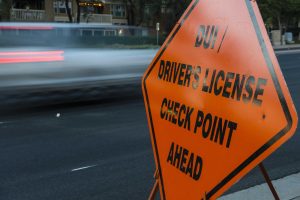 DUI checkpoints, also known as traffic stops or mobile checkpoints, are roadblocks set up by law enforcement agencies to identify and apprehend drivers who may be under the influence of alcohol or drugs. However, the legality of these checkpoints can sometimes be called into question, as they involve the potential infringement of individuals’ constitutional rights. In this article, we will explore the criteria that determine the legality of DUI checkpoints in Kentucky and the implications for individuals facing DUI charges.
DUI checkpoints, also known as traffic stops or mobile checkpoints, are roadblocks set up by law enforcement agencies to identify and apprehend drivers who may be under the influence of alcohol or drugs. However, the legality of these checkpoints can sometimes be called into question, as they involve the potential infringement of individuals’ constitutional rights. In this article, we will explore the criteria that determine the legality of DUI checkpoints in Kentucky and the implications for individuals facing DUI charges.
The Fourth Amendment and DUI Checkpoints
The Fourth Amendment of the United States Constitution protects citizens from unreasonable searches and seizures. It requires that any search or seizure be accompanied by an individualized suspicion of wrongdoing to be considered reasonable. In the context of DUI checkpoints, the question becomes whether these stops violate individuals’ Fourth Amendment rights.
Legal Precedents and Kentucky Law
To understand the legality of DUI checkpoints in Kentucky, we can refer to several legal precedents and state-specific regulations. The United States Supreme Court has ruled that properly conducted DUI checkpoints do not violate the Fourth Amendment. However, the checkpoints must be considered “reasonable” to be constitutional.
In the case of Kentucky v. Buchanon, the Kentucky Supreme Court outlined four factors, known as the Buchanon Requirements, which determine the constitutionality of a DUI checkpoint:
-
- Decision-Making Authority: The location, time, and procedures for the checkpoint must be determined by supervisory officers rather than low-ranking officers. Decisions should not compromise public safety and should have a reasonable relationship to the law enforcement purpose of the checkpoint.
- Consistent Treatment: Officers conducting the checkpoint must comply with established procedures to ensure equal treatment of all motorists. Field officers should not have unfettered discretion in determining which vehicles to stop.
- Apparent Purpose: Motorists approaching the checkpoint should be aware of its purpose. This can be achieved through the presence of uniformed officers and marked patrol cars, as well as the use of warning signs.
- Minimal Detention: Motorists should only be detained for the necessary time to perform a quick examination for signs of impairment or to check licenses and registrations. If an officer has reasonable suspicion of a violation, the driver may be asked to pull aside for further testing.
Challenging Unconstitutional DUI Checkpoints
If an individual believes that their DUI checkpoint stop violated their constitutional rights, it is crucial to consult with a DUI defense lawyer who can investigate the matter. Unconstitutional DUI stops can potentially lead to the dismissal of drunk driving charges, whether they are first-time offenses or felony DUI offenses.
Factors to Challenge DUI Checkpoints
Several factors can be examined to determine the constitutionality of a DUI checkpoint. For instance, the sequence in which vehicles are stopped can be a point of contention. If an officer deviates from the established pattern, it may raise concerns about the equal treatment of motorists.
A skilled DUI defense attorney will review the procedures and circumstances surrounding the checkpoint to identify any potential violations of an individual’s legal rights.
Unconstitutional DUI Traffic Stops
Apart from DUI checkpoints, police officers can also violate an individual’s constitutional rights through unconstitutional traffic stops. Before a traffic stop, an officer must have reasonable suspicion that a crime has been committed or is in progress. In the case of a DUI stop, the officer must have a reasonable belief that the driver is under the influence.
Behaviors Indicative of Impairment
Police officers often base their reasonable suspicion on specific driving behaviors that suggest impairment. These behaviors may include weaving in and out of lanes, driving too slowly for the conditions, running red lights or stop signs, stopping for a green light, speeding, or reckless driving.
However, it is essential to note that without dashcam video or other evidence, it often becomes a matter of the motorist’s testimony against the officer’s testimony.
Challenging Unconstitutional Traffic Stops
If there is evidence that an officer did not have reasonable suspicion to make a traffic stop, it could lead to the exclusion of evidence against the driver in court. Consulting with a DUI defense attorney is crucial in such cases, as they can assess the circumstances surrounding the traffic stop and determine if any constitutional violations occurred.
Understanding the legality of DUI checkpoints and traffic stops is crucial for individuals facing DUI charges in Kentucky. By adhering to the Buchanon Requirements and other legal precedents, law enforcement agencies aim to strike a balance between maintaining safe roads and respecting individuals’ constitutional rights. If you believe that your DUI checkpoint or traffic stop violated your rights, consult with a skilled DUI defense attorney who can protect your interests and potentially challenge the evidence against you.
Contact (859-746-0500) Michael O’Hara, PLLC for a Consultation
—
 About Michael A. O’Hara, PLLC
About Michael A. O’Hara, PLLC
When you have to deal with the justice system – whether related to a civil or criminal matter – you need more than the truth on your side. You need a skilled attorney who can employ sound legal strategies to produce the results you are hoping for. I am attorney Michael A. O’Hara, and I am licensed to practice in Kentucky and Ohio at the state level, as well as in Federal District Court and the Federal Court of Claims. I have been representing clients in the Northern Kentucky/Greater Cincinnati area since 1994.
